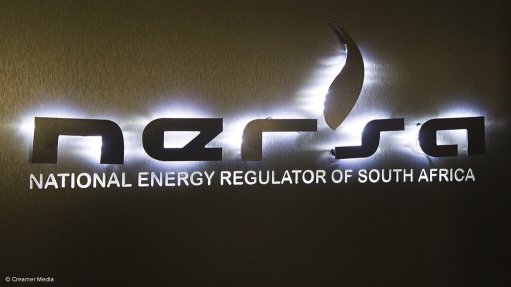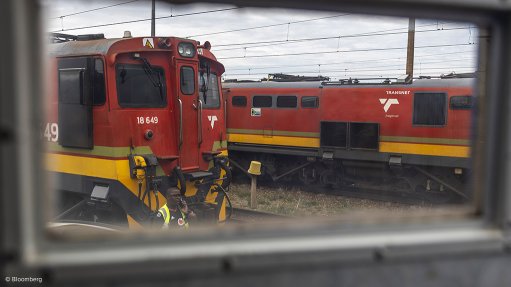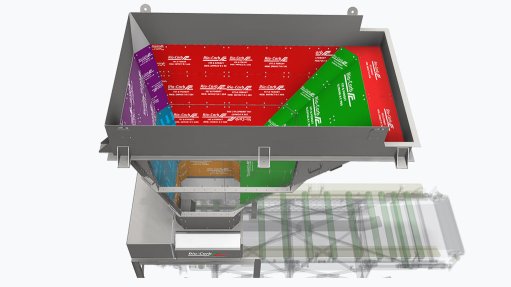Parliamentary committee wants water boards reconfiguration to yield efficiency, better access for communities
As the reconfiguration of South Africa’s water boards continues, the Portfolio Committee on Water and Sanitation has warned that the process should not be a “tick-box exercise to present a façade of action”.
After receiving a progress report compiled by the Department of Water and Sanitation (DWS), committee chairperson Robert Mashego said that the reconfiguration must be an effective intervention with tangible results of operational efficiency and better access to water for communities.
The reconfiguration needs to improve and enhance institutional efficiencies, rationalise the number of institutions, ensure economies of scale and remove challenges of various boards serving one province, he said.
As the committee continued to monitor the progress being made, it further urged the DWS to continue engagement with labour, municipalities and provinces, in addition to other key stakeholders, to ensure collaboration, with constant engagement expected to remove the confusion experienced when some areas were serviced by more than one water board.
Further, the reconfiguration should serve as a platform for improved relationships and the financial viability of water boards.
“Financial viability of water boards remains a critical concern for the committee as it is directly linked to their ability to raise investment capital for bulk water infrastructure development to ensure access to water for all,” he said.
“The reality is that the country’s water infrastructure is old and requires massive investment to alleviate huge water losses. To overcome this challenge, water service authorities (WSAs) must pay for services rendered to ensure financial viability of these institutions. This reconfiguration process presents an opportunity for further engagement on how water services authorities pay for services rendered,” Mashego emphasised.
The DWS is currently reconfiguring all the water boards to address transformation challenges, increase water access to unserviced areas, enhance market capitalisation for infrastructure projects and reduce skewed supply of water.
Water and Sanitation Minister Senzo Mchunu previously said that the shake-up is meant to provide adequate support to the under-capacitated WSAs and ensure that water boards provide water services to areas where there is no provision.
The reconfiguration of all water boards is an implementation of the resolutions of the National Water and Sanitation Summit held early last year, where stakeholders converged to develop solutions to improve the embattled water sector.
Following the completion of the reconfiguration, the number of water boards will decrease from nine to seven, with Sedibeng Water to be disestablished and Mhlathuze Water to be merged with Umgeni Water.
Discussing the progress made, DWS director-general Dr Sean Phillips said after reconfiguration South Africa’s provinces will be served by uMngeni-uThukela covering KwaZulu-Natal; Rand Water covering Mpumalanga and Gauteng; Lepelle Northern Water covering Limpopo; Magalies Water covering the North West province; Vaal Central Water covering the Free State and the Northern Cape; Amatola Water covering the Eastern Cape; and Overberg Water covering the Western Cape.
Rand Water’s scope is being extended to cover the entire Gauteng and Mpumalanga provinces, with consultations with the affected stakeholders ongoing.
Rand Water and Magalies Water have appointed independent consultants to undertake due diligence and the feasibility of rationalising the business operations and assets owned by both entities located in Tshwane, the North West and Mpumalanga to align with the vision of one water board for each province.
Rand Water’s final due diligence is expected by December 30, 2023, while Magalies Water’s final due diligence is expected by November 30.
Magalies Water’s scope is to be expanded to service the entire North West province, taking over portions from Sedibeng Water, which was disestablished last year, while Magalies Waters’ functions and assets in Gauteng and Limpopo will be transferred to Rand Water and Lepelle Water respectively.
Lepelle Northern Water Board’s boundary is also being extended to service the entire Limpopo province and technical discussions between Lepelle and Magalies Water to take over areas that are currently being served by the latter are under way, with a high-level desktop due diligence analysis expected by the end of December.
As part of the reconfiguration, Bloem Water, which was renamed to Vaal Central Water Board in July, will service the whole Free State and the Northern Cape, with the utility also already having taken over some staff, assets and liabilities from the disestablished Sedibeng Water in August 2022.
The new board of Vaal Central Water was appointed effective from last month.
In KwaZulu-Natal, the DWS created a single water entity, incorporating Mhlathuze Water and its boundary, as well as its staff, assets and liabilities, into Umgeni Water, which was renamed uMngeni-uThukela Water in July, with a new board appointed effective from last month.
In the Eastern Cape, the scope of Amatola Water has been extended to cover the entire province, with a high-level desktop due diligence analysis expected by the end of this month.
Meanwhile, Overberg Water will be responsible for the entire Western Cape province, with a high-level desktop due diligence analysis expected by the end of December 2023.
“With regard to governance, the committee welcomes the assurance that all boards, excluding Amatola Water, are in place. The committee hopes the legal impediment with regard to Amatola Water will be resolved with urgency to ensure that a permanent board is appointed,” said Mashego.
The committee also called for the speedy appointment of permanent CEOs at Amatola, Vaal Central and Umgeni-Uthukela Water to ensure steady implementation of targets.
Comments
Press Office
Announcements
What's On
Subscribe to improve your user experience...
Option 1 (equivalent of R125 a month):
Receive a weekly copy of Creamer Media's Engineering News & Mining Weekly magazine
(print copy for those in South Africa and e-magazine for those outside of South Africa)
Receive daily email newsletters
Access to full search results
Access archive of magazine back copies
Access to Projects in Progress
Access to ONE Research Report of your choice in PDF format
Option 2 (equivalent of R375 a month):
All benefits from Option 1
PLUS
Access to Creamer Media's Research Channel Africa for ALL Research Reports, in PDF format, on various industrial and mining sectors
including Electricity; Water; Energy Transition; Hydrogen; Roads, Rail and Ports; Coal; Gold; Platinum; Battery Metals; etc.
Already a subscriber?
Forgotten your password?
Receive weekly copy of Creamer Media's Engineering News & Mining Weekly magazine (print copy for those in South Africa and e-magazine for those outside of South Africa)
➕
Recieve daily email newsletters
➕
Access to full search results
➕
Access archive of magazine back copies
➕
Access to Projects in Progress
➕
Access to ONE Research Report of your choice in PDF format
RESEARCH CHANNEL AFRICA
R4500 (equivalent of R375 a month)
SUBSCRIBEAll benefits from Option 1
➕
Access to Creamer Media's Research Channel Africa for ALL Research Reports on various industrial and mining sectors, in PDF format, including on:
Electricity
➕
Water
➕
Energy Transition
➕
Hydrogen
➕
Roads, Rail and Ports
➕
Coal
➕
Gold
➕
Platinum
➕
Battery Metals
➕
etc.
Receive all benefits from Option 1 or Option 2 delivered to numerous people at your company
➕
Multiple User names and Passwords for simultaneous log-ins
➕
Intranet integration access to all in your organisation
















